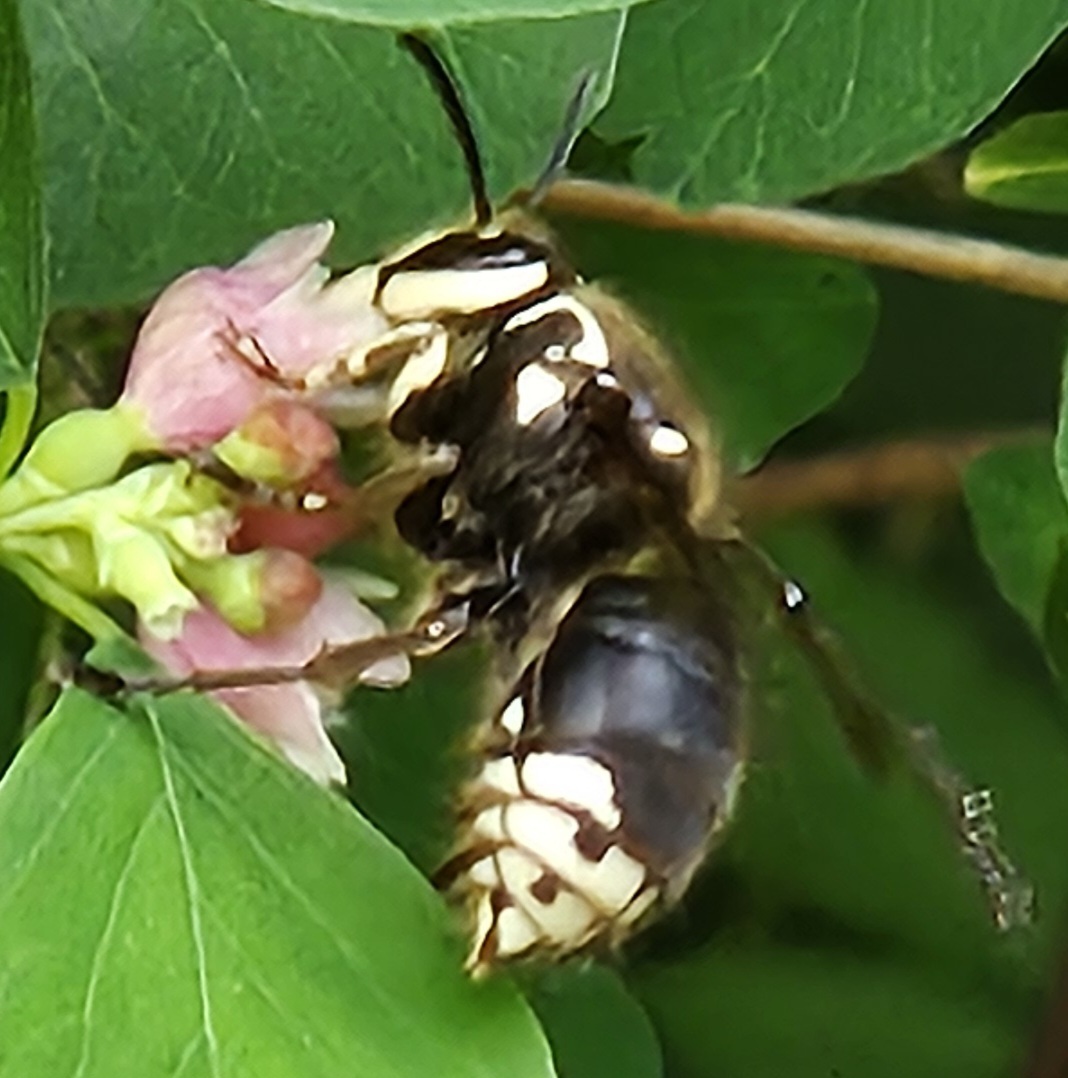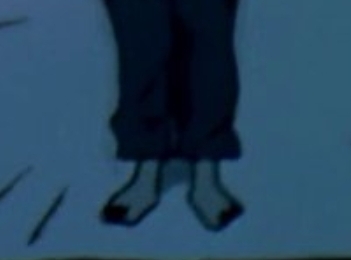WHERE TO GET THE BOOK: http://libgen.is/book/index.php?md5=F6B31A8DAFD6BD39A5986833E66293E6
Audiobook format (expires 1/27): https://litter.catbox.moe/l3298q.m4b
So, this post will be "Introduction" in the sense that it will introduce us all to the book club and the book, and we will also be covering the introduction. The emotional content is pretty heavy; as such I figured it deserved its own discussion. It's not especially long, but it covers Dr. Price's journey into accepting his autism, and if you're on the spectrum or even just neurodivergent in general you'll probably strongly relate to a lot of what he lays down here. You, like me, may read this chapter and find yourself thinking he's literally me, he just like me, he just like me fr ong no cap ![]()
Dr. Price is a transgender social psychologist born in Ohio, who graduated from Loyola University Chicago where he teaches as a professor in continuing studies. He wrote and published Laziness Does Not Exist before this one, and it's also worth a read. In this book, Dr. Price also discusses his gender identity and how there's a very high incidence of gender non-conformity amongst neurodiverse people. So in addition to folks with ADHD and autism, or those with other neurodiversities, it can also benefit LGBT+ folks who have to cover up their true selves for safety or social acceptance.
I plan on making another post about chapter one on Sunday or Monday of next week, depending on whether I can make time, and then one post about each chapter every week or every other week depending on what people's feedback is.
In the intro, Dr. Price discusses his personal and emotional problems, social isolation, autistic self-discovery and research, entry into the autism self-advocacy community, and official diagnosis. He discusses how people who don't fit the stereotype of autism are often neglected by medical professionals. How this neglect harms neurodiverse people of all stripes, and how unmasking can be a key to a full, authentic life. (Here's hoping.)
He describes unmasking as a frightning and, indeed, potentially dangerous prospect, but provides tools throughout for approaching the process and beginning to know yourself, find where the mask ends and you begin, and believe that the person underneath is worth knowing in the first place.
First, discussion questions:
- What interested you in this book club?
- Are you neurodiverse? Do you know someone who is?
- What stood out to you about the introduction? Any choice quotes? Anything you relate to?
He ends with an exercise called the Values-Based Integration Process, which we'll go over below.
VALUES-BASED INTEGRATION PROCESS (by Heather R Morgan) STEP ONE
"Think of five moments in your life where you felt like you were FULLY ALIVE. Try to find moments throughout your life (childhood, adolescence, adulthood, school, work, vacation, hobbies)
Some of the moments might leave you with a sense of awe and wonder -- 'Wow, if all of life was like that, it would be amazing!'
Some of the moments might leave you feeling deeply recharged and ready to face the next challenge, or satisfied and fulfilled."
The books says to write it down in as much detail as possible, but I don't actually expect anyone to post all that stuff here. Just a personal exercise to get the juices flowing. I'll post some of my own personal thoughts in a comment below.
CARCOSA@hexbear.net , I was asked to tag you for a sticky on this. I think a few mods are in my tag list as well if you can't get to it.
The following folks asked to be tagged:
- ReadFanon@hexbear.net
- Othello@hexbear.net
- Wertheimer@hexbear.net
- roux@hexbear.net
- voight@hexbear.net
- LarsAdultsen@hexbear.net
- BreadMaster5000@hexbear.net
- NoLeftLeftWhereILive@hexbear.net
- Pluto@hexbear.net
- PointAndClique@hexbear.net
- Jobasha@hexbear.net
- FodlegBob@hexbear.net
- Magician@hexbear.net
- ByteFoolish@hexbear.net
- YearOfTheCommieDesktop@hexbear.net
- Orannis62@hexbear.net
- homhom9000@hexbear.net
- the_itsb@hexbear.net
- optissima@lemmy.ml
- AdmiralDoohickey@lemmygrad.ml
- AlbigensianGhoul@lemmygrad.ml
What interested you in this book club?
I'm an autistic person who is maybe dying of terminally wretched masking but is terrified of unmasking
Are you neurodiverse? Do you know someone who is?
I'm AuDHD and so are my husband and kid, though unfortunately I still feel wildly alone because they're the same flavor of neurospicy as each other but very different from me
What stood out to you about the introduction? Any choice quotes? Anything you relate to?
The whole thing made me feel pretty deer-in-the-headlights - oh fuck, oh shit
reflecting on a moment you felt truly alive
Once upon a time, I went on a white water rafting trip in the New River Gorge as a small child, and we stopped at this weird bricked drainage grotto thing that felt very Indiana Jones-y to me, and most of the adults were scared to get out of the raft and swim into the grotto to the little waterfall in the back, but I was out of the boat the second they said we could. It was mysterious and wonderful and weird and exciting.
Most of the other "super alive" memories I have involve some degree of trauma, but this one was all joy and exhilaration.
PS - hey FourteenEyes@hexbear.net - I super appreciate you doing this. I know this is hard and has been a weight for you, and I just want you to know that I'm very, very grateful for your efforts. Thank you. ❤️
I have reuploaded the audiobook here:
https://litter.catbox.moe/5l45c0.m4b
This will expire in 72 hours after this comment has been posted as per last time due to the catbox limitations.
my bad, I missed that detail when I was putting this together. Seems I made a few typos, too, I can fix those as well. Thanks.
From @ReadFanon@hexbear.net 6 days ago:
This file link will expire 72 hours after this comment has been posted.
When I posted offering some audible credits (still have a couple btw, doesn't need to be this book, idgaf), someone mentioned it was available on anonymouse(?), but idk what that is
I'll try to find the comment
Edit - no 😂 it was "myanonamouse" - guess I was still kinda in the ballpark - here's the comment
Piracy website for books and audiobooks. here. It's a private tracker but they accept piracy noobs, so long as you obey the rules. It has a ton of good audiobooks, even if it also has a ton of horrible ones too.
I have lots of thoughts about this introductio and I'll write them in full later, but I'm just leaving a reply to mention that mentions don't work in the thread post on Lemmy, only in the replies.
What interested you in this book club? Are you neurodiverse? Do you know someone who is? I finally pursued an adhd diagnosis after 30+ years of coping and depression after being raised by parents too anxious about the stigma of neurodivergence to pursue a diagnosis (just put me in advanced classes instead). My partner and I are both shades of partly diagnosed spicy, adhd and major depression are mine and she has a “highly sensitive introvert personality” with anxiety. We’ve been tugging at threads in our tangled brains to try and figure out what’s up. We’re both fairly successful in our fields through masking, coping, and misery, and want to be advocates such that no one else needs to feel anything besides pride and an embrace of their neurodiversity. Hoping the perspectives of this book will be transformative in the way that Trans Liberation was the first time I read it. A better future is coming for all of us.
What stood out to you about the introduction? Any choice quotes? Anything you relate to? Will download tonight and dive in and check back in to the thread.
Ps this com has already done wonders for my understanding of neurodiversity, embrace of my own and that of others, and you’re all wonderful people who deserve nothing but the best from life
We’ve been tugging at threads in our tangled brains to try and figure out what’s up.
Me and my wife are working through this right now. We are also both various degrees of spicy. One thing I think that has helped is to maintain an open channel of communication that is specific to just the ND stuff as y'all figure things out. We've been doing this for like 15 mins here and there and it's helped both of us understand each other's plight.
Like, communication with your SO is pretty paramount but having a lane open just for the neuro-chaotic has been a great tool.
What interested you in this book club?
I have read through this book a couple of times and I think it's really valuable. It's a bit flawed imo and I hope that in a few years time we'll see a revised edition come out to bring it up to speed with a couple of things but 90% good is still really good, even moreso when we're talking about stuff that there's almost nothing having been written about.
Don't ask me about my criticisms of the book because I don't want to prime people to dislike this book and I don't want to shit on the experience for others or to drag the book club experience down. Maybe when the book club comes to a conclusion it might be time to reflect on where the book could be improved.
I'm also interested in this book club because I volunteered to share my experience - I participated in training developed and delivered by Heather Morgan that formed the basis of the unmasking exercises and it cost a fair chunk of change and the rest of the group I was with were all... sorta petit-bourgeois life coach types and I just know that to get access to this stuff otherwise, people would be looking at having to start as a client with a life coach and that shit costs like $100+ per session.
That doesn't really sit well with me and I know that it puts this expertise out of reach for a lot of people here. I've railed against how fucked it is that neurodivergent people are generally higher represented in unemployment and underemployment, they are likely to be underpaid for their work, and they tend to have higher costs for things like therapy, medication, and accessibility (think like needing a house cleaner or having to order food delivered because executive dysfunction has you in its claws and you need to eat but the idea of trying to cook something might as well be climbing mount Everest or just having to catch a taxi because the ADHD tax made you run late for work and you're better off paying the taxi fare than you are getting fired...)
The inequity of putting this stuff behind an inaccessible paywall isn't something I find tolerable. Don't get me wrong, people like Devon Price and Heather Morgan deserve to be paid for their work but the inherent injustice of the care system and the economic system underpinning it puts the expertise out of reach of most people who aren't at least comfortably "middle class" and it makes me feel indignation to know that the people who would likely benefit the most from this stuff are the ones who are also the most likely to be excluded from it.
I can't change the way that it is but I can do my part to democratise this expertise.
Are you neurodiverse? Do you know someone who is?
Yep. I'm autistic with ADHD, late-diagnosed, and enough of the "other" neurodivergence that tends to be a bit of an afterthought in comparison to autism and ADHD too.
As for others? Lol. Where to start... there are quite a few neurodivergent people I know, despite having a limited social circle at the moment. I've been the catalyst for more than a couple of people to go and get themselves diagnosed but I promise that I was very gentle in this process with people - I know that late-diagnosis can be one hell of a bumpy ride and I wouldn't go throwing someone else into the deep end with that, regardless of how obvious their neurodivergence might be to me.
What stood out to you about the introduction? Any choice quotes? Anything you relate to?
Honestly I haven't started re-reading the book just yet (😬) because I struggle so damn much with reading especially at the moment.
I'm participating in this because I want to contribute to the momentum of the reading group and to show my support.
I'll write my thoughts later, but for now I wanted to thank you for this, I've been meaning to read this book for a while now and this might be the push I need.
The values-integration process was a little uncomfortable.
To try to think of 5 times when I felt that was is challenging to a lot of my preconceptions.
That's understandable.
I participated in the training that Heather Morgan authored/delivered which the book's exercise is a distillation of and it was challenging for me as well (I have a pretty extensive history of childhood trauma).
What I'd encourage you to do is to not focus so much on coming up with 5 but instead just try to come up with a couple. They don't need to be some huge watershed moments in your life, they can also be "small" experiences that resonated with you.
I can elaborate on the purpose of this exercise if you feel like understanding it better would be helpful for you.
It might be worth discussing this exercise with someone who you trust because if you're high masking or you're carrying a lot of trauma then it can be difficult to recall moments where you've experienced this in your life but talking it through with another person might be helpful.
Do you think you could DM me that elaboration when you get the opportunity.
I was planning on discussing this with someone else yes, but the suggestion is still vwery much appreciated. Thank you a lot for your input
[CW: mild discussions of child abuse used in the context of analogy]
Sure, I'm about to sleep and I'm a bit flat today so if there's anything I have realised that I've missed I'll post another comment so you'll get notified but also feel free to ask if I'm not being as clear as you need.
I'm going to put the explanation for the process here. I guess spoiler warning(?) but tbh there's nothing that will get spoiled by understanding the process better unless someone is planning to intentionally sabotage a self-conducted exercise but if that's the case then there's bigger stuff to worry about than encountering a spoiler for this.
So the heart of the exercise is based on the understanding that masking is a fundamental disconnection from your "authentic" self (I hate that term but we're going to use it for shorthand in this case.)
This fundamental disconnection from yourself leaves you feeling a variety of negative things - being without direction or purpose, feelings of emptiness or meaninglessness, depression, anxiety etc. and ultimately doing things not from a place of what you need, what you want, and what is in line with your true values but instead it's doing things from a place of internalised expectations placed upon you by others (individuals, family, community, society, the media etc.)
The opposite of this is feeling a strong connection to your authentic self and doing things that are in harmony with yourself, your needs, your desires, and your values.
What comes from this strong connection to your authentic self and acting upon it is feeling enlivened, something that is likely quite rare for a late-diagnosed or undiagnosed autistic adult.
To try to connect a person who is high-masking to their authentic selves is difficult because each facet of their masking is typically very strongly associated with external expectations, even if they've been internalised by the individual, and so asking a high-masking autistic person "What is most important to you?" is a bit like asking an abused child what a healthy relationship looks like - you're going to get answers that are primarily filtered through their experience (either of abuse or of masking) and what has developed in response to that rather than something deeper.
So for a high-masking autistic person, if you asked them straight up what they value then they're very inclined to give you answers that come from a place of meeting the expectations of others or ways to avoid experiencing rejection/ridicule/humiliation etc. from others.
This isn't really a connection to the authentic self, however. This would just be an exercise in articulating the necessity for masking and the reasons why masking is important. (Obviously this is the complete opposite of what the exercise is supposed to achieve.)
As an analogy, an abused child might tell you that a healthy relationship is one where neither party has arguments. This would be because they've associated arguments with threat and suffering. But if we took that child and they used that as their basis for achieving a healthy relationship then you end up with an adult who will constantly compromise on their own needs, who will avoid conflict at any cost, and who doesn't know how to achieve conflict resolution but only appeasement; they might have achieved a relationship that is minimal-conflict but that alone is not a recipe for a healthy relationship because there is necessarily going to be a degree of conflict that comes from asserting things like needs and boundaries, and so it's not unusual to have arguments in relationships. In fact a relationship where there are never any arguments is usually a good indication that there's something really amiss.
So to circumvent getting answers about values and purpose "from the mask" and instead from the authentic self, the exercise asks you to identify times when you felt strongly connected to your authentic self on an experiential level - hence the question about moments when you felt really alive.
Once a few experiences have been identified from that place of feelings very alive - from being connected to and acting upon your authentic self - then the next step is to develop an understanding of what values were being enacted or embodied during these experiences to draw out what really matters to you as a person so that you can start to find ways to reconnect with yourself and to embody your authentic values in your life.
If masking is basically like method acting (and in a lot of ways it really is) and you ask the method actor what they are feeling, they're going to tell you what their character is feeling. In a similar way, if you ask a high-masking autistic what they value they're going to tell you what is important to their masking. A method actor is capable of switching all of that off though. On the other hand, a high-masking autistic person might not even realise that they are masking or understand what's beneath the mask. So the exercise is designed to try and catch those (often rare) moments when you haven't been performing the mask but rather embodying and enacting your authentic self and connecting to that outside of masking (even if you aren't able to identify that you weren't masking at the time) in order to draw out what that looks like so you can set about actively pursuing this in your life going forwards.
It's important to note that the exercise is like a short summary of what the process really is and the process is something that ideally takes place over the course of more than a few hours of discussion and self-reflection and stuff like that.
Anyway, I hope that makes some sense.
It's difficult to describe an experiential process like this, especially because it's necessarily going to be different for each individual, so apologies if it still seems vague or confusing.
If you are struggling with this process I just want to let you know that you aren't alone, there isn't something wrong with you if you're having difficulty doing this exercise, and that everything is okay. You won't miss out on getting stuff from reading this book even if you struggle with this exercise or if you can't do it at the moment. The process of unmasking can be confronting and challenging; if it was easy then we'd already be doing it instead of needing to read books and exercises on it even just to get started on our unmasking journey.
Anyway, that's a lot of rambling on.
I'm going to try and check in on how you're feeling about this exercise in about a week's time but I'm terrible for forgetting things and letting them slip off my radar. I'd encourage you to reach out to me if you don't see me replying to this comment in about a weekor if it's between then and now and you would appreciate some more input from me.
I hope this has helped clarify things a bit!
thank you this was very clear and i think I get what youre saying.
this is going to be hard
Hey, sorry this got away from me; my health has been shitty.
I'm just checking in with you to see how you're going with this exercise - how's progress? Is there anything that you would like help with?
That's cool.
It's not an easy exercise for everyone and I just want to reinforce to you that it's not a reflection of some deficit in you - some people have been through a lot of shit, and some people's experience of masking is especially deep and pervasive so trying to pinpoint those rare glimpses of existence outside of masking can be really difficult to do.
If you are interested, I can make time to talk this stuff through with you the way that a coach trained in this model would do. I won't promise that we'd arrive at the end point of the exercise and there's no pressure, but if you're interested we can arrange a time. What it would look like is a conversation (text chat or voice chat) over approximately an hour. The conversation is very much focused on the positives and it's not gruelling emotional work like you might experience in therapy. It might take more than one conversation and I'm happy to see the process through and to make further meet-up times if you feel like it would be helpful.
(If needed I can pull up stuff to show that I attended the training if you want to verify. And just so it's clear from the outset - this is something I am offering to do without charge and I am not going to ask for anything nor do I want anything in exchange, I'm not going to try and sell you anything, and I'm not going to use this to try and draw in potential clients for coaching or anything like that.)
I'll leave the ball in your court - if you want to more info or you want to line up a time with me then feel free to. If not, that's totally fine - I am not of the opinion that there's one model or exercise that works for everyone. If it's not for you or it's not the right time at the moment, that's cool. If this is something you want to do by yourself or with someone else, likewise this is completely fine with me.
What interested you in this book club?
I'm on a huge ass reading binge that started with "Why am I actually not reading theory?" that started about 1.5 years ago with Marx and Engels. This has become a journey of me rediscovering a love for reading. I actually started forming themed blocks around all the books I have been wanting to tackle. I did not have a Neurodivergent block planned and then saw this book mentioned a bunch shortly after my diagnosis. I actually finished reading this book at the beginning of this month but it's kicked off a new block focused on Neurodivergence, Trans Liberation, LGBTQ+ in general, Feminsim, PoC, and etc stuff. Basically marginalized groups. I wanna learn as much as I can now lol.
Rambling aside, I guess I am interested in this book club to see how others see themselves reflected in the book like I did.
Are you neurodiverse? Do you know someone who is?
My diagnosis is Autism, Severe Depression(probably actually Major Depressive Disorder), and Social Anxiety. My wife is ND, I am on a discord sever full of ND and LGBTQ+ friends, and my bestie is also ND. Our disorders range from both main flavors of ADHD, PTSD/CPTSD, Anxiety, Depression, OCD, and a few more.
What stood out to you about the introduction? Any choice quotes? Anything you relate to?
What stood out for me, was that Devon mentions his drinking problem a few times but I think in the intro. I have a history of drinking and it dawned on me real fast that it was probably a coping mechanism due to my undiagnosed autism and trying to exist in a Neurotypical world without a script. I fell back on alcohol when I had a bad day, or when I had a good day. I did it when I was hanging out with family and friends. I think this was me trying to fix my overstimulation and to try and pretend to be functional in social environments. I think my Depression and Anxiety could also potentially be my body coping as well or it could just be comorbidity(or a bit of both?). Like I've always had a drinking problem but it never felt like an addiction. This might be the answer to that.
Reading the dead tree version right now, stuck in an analysis loop on the last page of the introduction.
Edit: goddamned adhd, missed the homework portion:
- What interested you in this book club?
Seeing other people mention this book, so I ordered it.
- Are you neurodiverse? Do you know someone who is?
Aside from the aforementioned adhd, I'm also on the autistic spectrum.
- What stood out to you about the introduction? Any choice quotes? Anything you relate to?
There were several points where I audibly said "what the fuck". It's like he was writing the book about me.
There were several points where I audibly said "what the fuck". It's like he was writing the book about me.
Yeah. There were lines in this book that I had said, almost verbatim, to my therapist.
What interested you in this book club?
I have a copy, unfinished, and want to read it with comrades
Are you neurodiverse? Do you know someone who is?
Yes and yes. Adult diagnosis
What stood out to you about the introduction? Any choice quotes? Anything you relate to?
I'll add what I highlighted
"To other people, my tears were immature tantrums and my opinions were condescending diatribes. As I grew up, I learned to be less intense, less embarrassing- less me"
"Things like staring at a person's forehead to stimulate eye contact, or memorizing conversational scripts based on exchanges they saw on TV"
"Refusing to perform neurotypicality is a revolutionary act of disability justice"
I accept I'm autistic, but taking off the mask is scary. Reading that the author had similar feelings makes it feel less scary, that other people on the spectrum could have gone through the same thing. That makes it feel like my diagnosis is less of some attribute defining me and more of a disability many of us share, and therefore can use each other to go through.
The Dr that diagnosed me said, when I'm alone there's no reason to keep my mask on so use that time to let it all out (or else I'll get burned out but I took it as self understanding). I got to the poing where I can unmask in front of my best friend. I hope this book can help with the rest of my relationships.
I just got the book. Can you add me to the tag list when you get the chance?
This book has already changed, and may have saved, my life. Since I made my previous post about it I've consulted two of my oldest friends - one just finished reading, the other is now starting - and they agree that I'm probably Autistic, even though they say it had never occurred to them before. All three of us had serious misconceptions about what Autism is, and this book has been profoundly illuminating for all of us.
What interested you in this book club?
It was @Pixel_Juicer@hexbear.net 's post here that really started not only clearing up some misconceptions but also ringing some bells. And then other posts, especially from @FourteenEyes@hexbear.net and @ReadFanon@hexbear.net , pointed me toward Unmasking Autism in particular. And here I thought the first Hexbear-approved book I was going to read this year was Clara Mattei's The Capital Order.
Are you neurodiverse? Do you know someone who is?
Yes - I have severe migraines, which are not only neurological but have also caused enough other problems that I think they qualify as neurodiversity. I also have depression. And lately I've been having serious trouble dealing with the neurotypicals, which is why I started having more questions and reading threads like this one, so I hope that anyone else reading this who has trouble understanding why their life is the way it is will also read this book.
What stood out to you about the introduction? Any choice quotes? Anything you relate to?
In the introduction, the line that hooked me was "I seemed to be broken in ways I couldn't explain, but which everyone else could see at a glance."
For the full book, the most important thing for me was the discussion of autistic burnout. That rang more bells than Quasimodo, and figuring out how to better avoid it (and the ensuing migraine clusters that absolutely annihilate me) is why I think my life is about to seriously change for the better. (Might get worse, first, but.) Comrades, I don't know that I have ever felt hope like this before. Thank you, thank you, thank you to everyone here.
What interested you in this book club?
This post on hexbear dot net and the fact that I also recently downloaded it :) good timing
Are you neurodiverse? Do you know someone who is?
Just me and every one of my friends (except for maybe one)
What stood out to you about the introduction? Any choice quotes? Anything you relate to?
My self-confidence is absolutely shot from years of shame and hiding myself.
“I’d hidden all this for years because I was certain it made me a joyless, unlovable asshole. Now I was beginning to wonder why I believed such awful things about myself.”
My goal is to eventually get to this point. My therapist, for example, has continually asks me why I believe bad things about myself and tear myself down so often. And I genuinely have no other answer than it has been what people have seen in me ever since I can remember, particularly my family
Sorry for the long time since my first comment here, only found the energy to tackle this right now.
I have one question tho. I never really participated in any sort of book club before. Is this basically just a post a week discussing a chapter at a time and we just comment about it in each thread, or is this something different?
Now for the discussion questions:
What interested you in this book club?
Even before I was diagnosed as autistic a little less than a year ago, I was already searching about it like crazy, and one of the biggest recommendations I found was this book, but I never got around to reading it.
Are you neurodiverse? Do you know someone who is?
Like I said above, yeah I'm autistic. I do know at least one other person that is a diagnosed neurodivergent, in his case he's bipolar. There's probably other people around me that might be neurodivergent too, but no other actual diagnosed people. I don't think there's anyone else in my family that is also autistic tho, I might be the only one, makes me feel kinda lonely actually.
What stood out to you about the introduction? Any choice quotes? Anything you relate to?
I haven't read the introduction yet since I just downloaded the book and it's very late here, I'll edit this tomorrow and put my thoughts about it. (Also, I was confused for a bit and thought this question was about this post as an introduction, not the introduction of the book, lol. Had to take a look what others were writing to realize that cuz I didn't get the question.)Well, aside from the "he’s literally me, he just like me, he just like me fr ong no cap" from 90% of the introduction lol, these quotes just describe me:
I believed something was fundamentally wrong with me. I seemed to be broken in ways I couldn't explain, but which everyone else could see at a glance.
After being mocked about our passions, we become secretive about our special interests.
To other people, my tears were immature tantrums and my opinions were condescending diatribes. As I grew up, I learned to be less intense, less embarrassing - less me.
I couldn't describe myself better. Years and years of non-stop bullying followed by my loud crying everyday of my life during childhood and being constantly mocked for the things I liked, all while feeling broken, feeling angry at the other kids, feeling like I didn't belong and that I was an alien, couldn't result in anything other than a mess of an adult that is still traumatized to this day. 🫠
Good thing I'm in therapy at least.
Also, add me to the tag list if you can, please.












